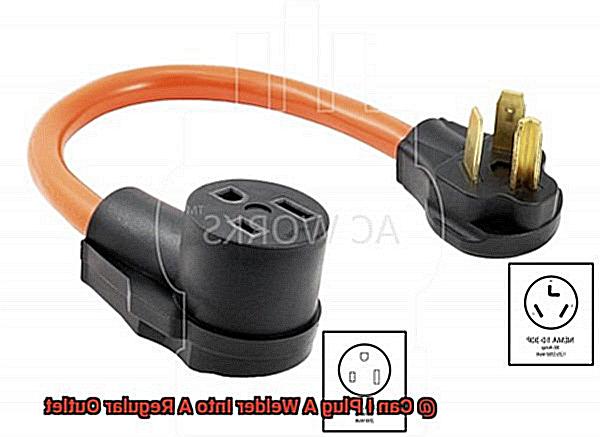Find out the information you need about Can You Plug An Ac Into A Regular Outlet in this article, all summarized clearly by us.

Can You Plug an AC into a Regular Outlet?
Imagine you’ve just acquired a swanky new air conditioner, eagerly anticipating the relief it will bring from the scorching heat. But as you unpack it, a nagging question arises: Can I simply plug this AC unit into any old electrical outlet in my home? Let’s dive into the world of electrical compatibility to find the answer.
Electrical Compatibility: The Basics
Before we delve into the specifics, it’s crucial to understand the fundamentals of electrical compatibility. Electrical appliances, like your AC unit, are designed to operate at a specific voltage and amperage, which are the electrical pressure and current, respectively. To ensure safe and efficient operation, it’s essential to match the appliance’s electrical requirements with the electrical supply available at your outlet.
AC Units and Regular Outlets
Now, let’s focus on air conditioners and regular outlets. Regular outlets in homes, often referred to as “general-purpose” outlets, typically provide 120 volts of electricity. On the other hand, most AC units require 240 volts to operate effectively. This means that plugging an AC unit into a regular outlet is not recommended as it can lead to electrical hazards, including overheating, damage to the appliance, or even electrical fires.
Understanding Voltages: 120V vs. 240V
To further illustrate the difference between 120V and 240V, consider the analogy of a water hose. Voltage can be thought of as the water pressure, while amperage represents the volume of water flowing through the hose. A 120V outlet provides a lower electrical pressure, comparable to a garden hose spraying water at a moderate force. In contrast, a 240V outlet delivers a higher electrical pressure, akin to a fire hose gushing water with much greater force. AC units, like the fire hose, require higher electrical pressure to function properly.
Safety First: Hiring a Qualified Electrician
Given the potential electrical hazards associated with incorrect voltage matching, it’s highly recommended to seek the services of a qualified electrician. A knowledgeable electrician can assess your home’s electrical system, determine if you have a 240V outlet suitable for your AC unit, and safely install the appliance for optimal performance and safety.
Expert Tips and Advice for Electrical Safety
- Always check the voltage requirements: Before plugging in any appliance, including an AC unit, verify its voltage requirements from the manufacturer’s specifications.
- Don’t overload outlets: Avoid plugging multiple high-wattage appliances into the same outlet, as it can exceed the outlet’s capacity and lead to overheating or electrical fires.
- Use surge protectors: Surge protectors provide an extra layer of protection against sudden spikes in voltage, safeguarding your sensitive electronics.
- Regularly inspect cords and outlets: Examine electrical cords and outlets periodically for any damage, such as frayed wires or loose connections. Promptly replace any damaged components to prevent electrical hazards.
- Seek professional help: When dealing with electrical work, it’s always advisable to consult with a qualified electrician. They possess the knowledge and expertise to ensure electrical safety in your home.
FAQ: Common Questions about Electrical Compatibility
Q: Why do AC units require 240V instead of 120V?
A: AC units demand higher voltage to power their compressors, which play a crucial role in cooling the air. 120V is insufficient to provide the necessary electrical power for efficient AC operation.
Q: Can I use an adapter to plug an AC unit into a 120V outlet?
A: Using an adapter is strongly discouraged. Adapters merely change the plug configuration but do not alter the voltage supply. Plugging an AC unit into a 120V outlet via an adapter can lead to electrical hazards and potential damage to the appliance.
Q: How can I determine if my home has a 240V outlet?
A: Identifying 240V outlets requires caution. They typically have three prongs: two flat blades and one round pin. However, it’s essential to consult with a qualified electrician to verify the outlet’s voltage and ensure proper wiring and grounding.
Conclusion
Understanding electrical compatibility is paramount for safe and efficient appliance usage. Matching the voltage requirements of your AC unit to the electrical supply available at your outlets is essential. Plugging an AC unit into a regular 120V outlet is generally not advisable due to the potential for electrical hazards. Always consult with a qualified electrician for professional guidance and to ensure the safe installation and operation of your AC unit. Remember, electrical safety should be a top priority in your home.
Are you interested in learning more about electrical compatibility and home electrical safety? Explore our website for a wealth of informative articles and resources to empower you with the knowledge you need to maintain a safe and comfortable home environment.

Image: portablepowerguides.com
You have read Can You Plug An Ac Into A Regular Outlet on our site. Thank you for your visit, and we hope this article is beneficial for you.